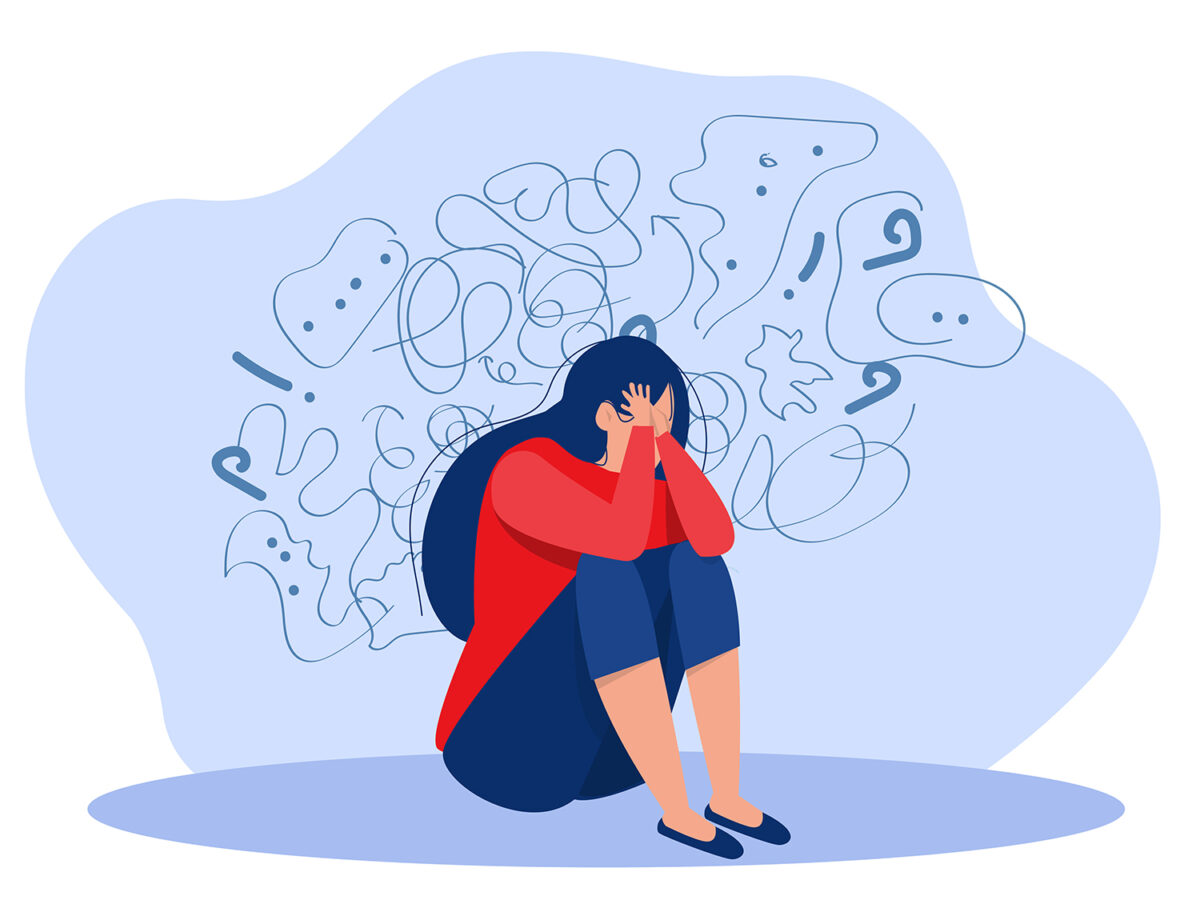Beverly Hills Courier columnist Eva Ritvo, M.D. is a psychiatrist with more than 25 years’ experience in practice. She is the author of several books, including “Bekindr- The Transformative Power of Kindness,” and the founder of the Bekindr Global Initiative. Dr. Ritvo received her undergraduate and medical degrees from UCLA and psychiatry residency training at Weill Cornell Medicine.
What a few weeks this has been, as we all try to digest the news about the spread of the new Coronavirus, also known as COVID-19. People around the globe are united in their fear. In my psychiatry practice and among my friends and family, the anxiety is palpable. The dramatic fall of the stock market is a manifestation of our shared concern. Most of us, even if only for a brief moment, entertained that we could die from it. On one hand, this seems irrational given that there have been fewer than 4,000 deaths out of 7.7 billion people. On the other hand, it is a window into our shared humanity. The death of one us impacts all of us. It also provides us an opportunity to see how our brains work, so we will be better able to understand our fears, learn to cope better, and make better decisions in the face of COVID-19 and other threats.
Our brains are wired to look for danger. Our prehistoric ancestors who survived were the ones who were best at spotting danger. The first ones to see the lion and run were the most likely to survive.
Those ancestors passed their genes on to us and we can’t help but look for danger everywhere we go. When we spot it, our primitive “fight or flight” response kicks in. This week, our sympathetic nervous systems, responsible for our “fight or flight” responses, have been collectively in overdrive.
As we have been consuming news of the Coronavirus, our bodies are secreting cortisol that drives our “fight or flight” response. Cortisol causes us to hyper- focus and makes it harder to look away from the potential threat.
This hyper-focus is crucial in times of crisis. If a saber-tooth tiger is standng in front of you, you had better focus and run as if nothing else in the world matters. But if real danger is not present, we may become obsessed with the wrong things. If fear doesn’t have the proper target, it can become anxiety and paranoia. If you see danger on the other side of the world, the fight response isn’t helpful and your brain can get confused. And that is exactly what is happening right now.
We are halfway through one of the deadliest flu seasons, in the last decade, and yet few of us missed a beat. We paid very little attention to the risks and took almost no special precautions. In fact, less than half of us even got the flu shot. Just now with over 100 cases of Novel Coronavirus in the U.S., some are having nightmares and others are waking up in the middle of the night. The stock market was down five days n a row at a rate similar to the crash in 2008, and events around the world are being canceled in anticipation of the spread.
In our increasingly interconnected world with a 24-hour news cycle, it is hard for us to put the risks into proper perspective. Our primitive brain kicks in and the threat of Coronavirus looms large. When we try to problem-solve while our sympathetic nervous system is in overdrive, we fail unless the answer is quite simple: RUN!
Instead we need to activate our frontal lobe to properly think through the threat and decide the right course of action. This requires us to calm our primitive brain. COVID-19 will be beat like the previous threats before it by the best minds in the world working together to understand the virus, develop medications to treat it, and vaccines to prevent it.
We must all do our part to prevent spread. We can best do this by remaining calm and following instructions from the experts. The Center for Disease Control (CDC) www.cdc.gov/COVID19 and the World Health Organization (WHO) https://www.who.int/emergencies/diseases/novel-coronavirus-2019 will inform all us how to properly prepare for the possibility of COVID-19 in our area.
Being prepared is an important way to quell anxiety as it in fact increases your chances for survival. How can you make sure your immune system is in optimal shape? Sleep, nutrition and exercise are the basic ingredients. Talk to your doctor about vitamins or other supplements. If experts are calling for us to have two weeks of medication and food on hand, heed their advice. Yesterday I learned that singing the Happy Birthday song to yourself is a good way to gauge if you are spending long enough washing your hands (about 20 seconds).
There is much to be learned from this current challenge, not only on a public health level but on your personal health level. We need to learn to stay calm even in the face of fear.
To do so, we need to stimulate the opposite of our fight or fight response that the news and our imagination is triggering. We must invoke our parasympathetic response nicknamed our “tend and befriend” or “rest and digest” response. These catchy phrases will give you a good clue on how to activate them. Tend to yourself and others. Talk to a friend. Hug a family member or your pet. Grab a bite to eat, preferably something that will properly nourish you. Take a few minutes to breathe deeply. Take a warm bath or shower. Nap! Check in with yourself after these activities and see if the threat seems a bit more remote.
It is always important to observe what comes up for you. Take some quiet time and allow yourself to feel your anxiety. How is it connected to the Novel Coronavirus? How is it connected to past issues? One friend mentioned that this current scare triggers the anxiety he has carried since childhood when he lost a parent at an early age. How do you typically deal with anxiety? How can you use this opportunity to learn to deal with it more effectively? Perhaps this is a good time to begin a yoga or meditation practice if you haven’t already.
If we pull the lens out even further, we can learn more. We can see that our future success and failures lies in embracing our shared humanity. Air travel and the Internet have flattened our world and we must see that we are all part of one humankind. The greatest challenges that lie ahead, such as climate change, economic stability and disease spread, cannot be solved regionally. We must all think globally while continuing to act locally. COVID-19 is simply a reminder that what is a threat to one of us, is a threat to all of us. We must unite in our efforts to care for ourselves and others.
I am confident that we will prevail by finding ways to contain this virus and minimize the loss of human life as we have so effectively with the challenges in the past. Do your part by staying informed, being prepared and learning how to be calm in the face of real and anticipated adversity.







